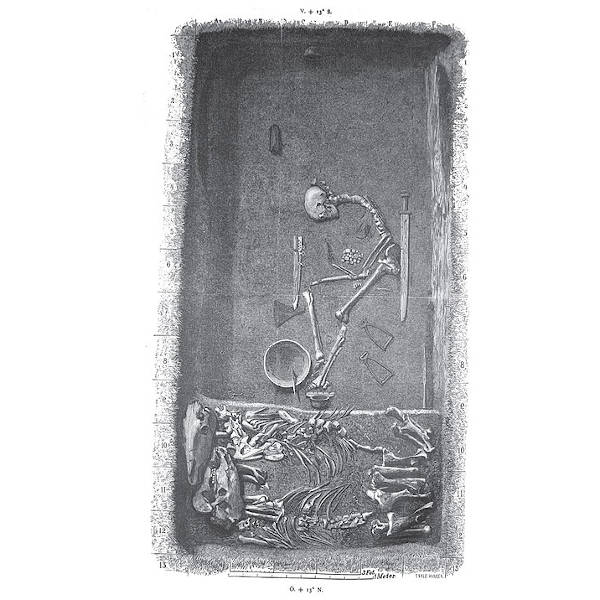Compare your DNA to 168 Ancient Civilizations
FIND THE HISTORY OF YOU
So, you've got your DNA results? To discover who you really are, you need to know where you come from. We can take your DNA results one step further through the use of advanced archaeogenetics
How It Works
Uncovering your ancient ancestry is simple with our three-step process.

Take a DNA Test
Get tested with one of the major DNA testing companies (e.g. AncestryDNA, MyHeritage, FamilyTreeDNA, DanteLabs etc.).

Download Your Raw Data
Download your raw DNA data file from your testing provider's website. We support all major formats.

Upload & Explore
Upload your DNA file to our secure platform and receive your detailed ancestry analysis within minutes.
DIG DEEP
Into Your Ancient History
Your DNA, fully visualized
Explore your roots with exclusive dynamic graphs, interactive maps, and ancestral timelines designed to bring your ancient past to life.

Why Choose MyTrueAncestry
Discover what sets our ancient DNA analysis apart from traditional ancestry services.

100% Anonymous Insights
All retained data is fully anonymized, ensuring your privacy is completely protected.

Powered by Real Ancient DNA
The only service powered by real ancient DNA samples from all over the world and advanced archaeogenetics technologies.

Try For Free
Our basic analysis is 100% free for you to try with no payment method required.
BROWSE OUR DNA SPOTLIGHTS
Jean-Paul Marat - Revolutionary France

The future French Revolutionary Jean-Paul Marat left home at the age of 16
to train in medicine and would eventually settle in Newcastle upon Tyne where he
gained a reputation as being a highly efficient doctor who also had an interest
in political writings. He moved back France 6 years later and his medical skills
earned him the patronage of the aristocracy. He used his new found wealth to
found a scientific laboratory where he began studies on fire, heat, light and
electricity - he was even visited by Benjamin Franklin. Despite his new status
and success, he began so spend a lot of time discussing and writing about social
injustice.
As Louis XVI struggled to maintain power in the late 1780s by assembling
the Estates-General for the first time in 175 years, Marat decided to end his
research and medical profession to focus entirely on his passion for politics.
He began writing on the topics of social, economic and religious reforms - this
manifested itself in numerous vicious attacks on those he proclaimed were
enemies of the people. His newspaper called for extreme violence against the
upper class and government provoking statements such as five or six hundred
heads cut off would have assured your repose, freedom and happiness. After
reaching fame, He was elected to the National Convention in 1792 where he
actively supported the death of the deposed King in a trial.
Read more here
High Ranking Birka Shield-maiden

The Birka female Viking warrior was a woman buried in the 10th century in
Birka, Sweden and discovered in the 1870s. The grave was assumed to be a battle
hardened man for 128 years until DNA analysis proved she was actually a
high-ranking professional warrior. Shield-maidens are female warriors that take
on male roles including wielding weapons and are depicted in many period
figures, tapestries and brooches as well as mentioned by the famous Danish
historian of the time, Saxo Grammaticus.
The grave chamber was made of wood and approximately 3.45m long and 1.75m
wide. The body was in a sitting position and found earing garments of silk and
silver. The grave contained a sword, an axe, a spear, armor-piercing arrows, a
battle knife, two shields, two horses, one mare and one stallion. The grave also
contained a game set with a board and pieces. This is considered evidence of her
strategic thinking and indicating she was an officer who could lead troops into
battle.
Read more here
Thuringian Princess of Hassleben

An ancient cemetery was discovered in Hassleben Thuringia which remained
the richest ancient grave found in Germany for almost a hundred years. Not only
was the oldest written Germanic word ever discovered etched onto a comb, but
hundreds of Roman coins, ceramic fragments and Roman-style brooches were also
discovered. This is no accident as much of our knowledge regarding Thuringia and
broader Germania comes from the Roman historian Tacitus. The Elbe Germanic
tribes who moved into this region were allies of the Romans who were trading
partners, a buffer to the neighbouring Chatti - sworn enemies of Rome, as well
as specialised in metalworking of iron and precious metals.
Here you can see the richly outfitted grave of the Princess of Hassleben
which demonstrates the influential noble class who had a very close relationship
with the Romans. She was a young woman buried with a choker, golden fibulae, a
ring, a collier of roman glass beads, roman coins, pottery plates and vessels.
In her mouth was a Roman gold coin - known as Charons obol - which would provide
payment to Charon the ferryman to allow her soul to reach the world of the dead.
Next to her remains lay the skeleton of a small dog - possibly her personal pet.
Read more here

Join Our Community
Our Community blog is your hub for the latest discoveries in ancient DNA, archaeology, and lost civilizations.
Stay curious, stay connected.
Stay curious, stay connected.

Contact Us:
EMAIL
INFO@MYTRUEANCESTRY.COM
MAILING ADDRESS
MyTrueAncestry AG
Seestrasse 112
8806 Bäch
Switzerland



